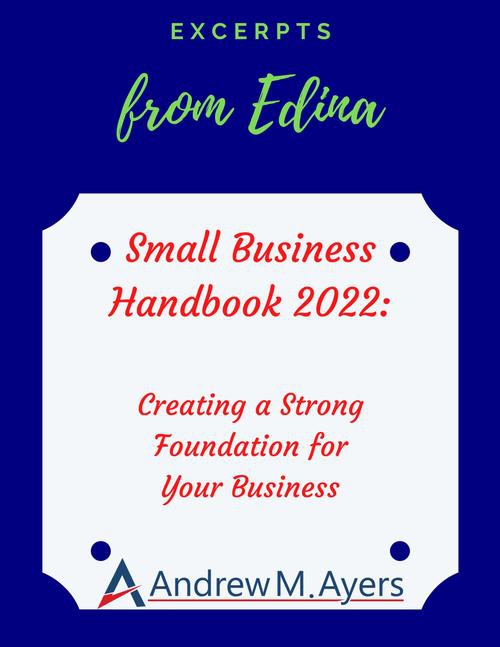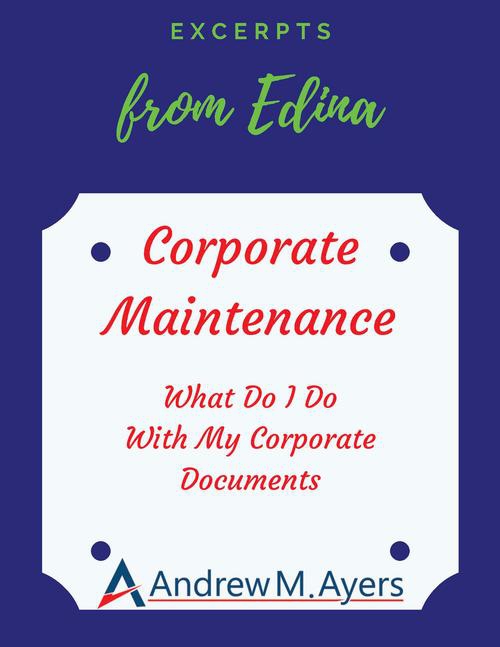 When it comes to creating contracts, most of the time will be spent on crafting the right language for the transaction, making sure that you've got the right provisions covered. It's important for your business that you've got the right provisions in case there is a problem down the road and also that you understand what the contract says and what the implications are for you as well. You'll likely run into clauses such as indemnification, personal guarantees, automatic renewal, and force majeure (in addition to the other more personalized items that you have negotiated as part of the contract creation). With all of these clauses adding pages and length to your contract, I still insist that you actually read your contract before you sign it.
When it comes to creating contracts, most of the time will be spent on crafting the right language for the transaction, making sure that you've got the right provisions covered. It's important for your business that you've got the right provisions in case there is a problem down the road and also that you understand what the contract says and what the implications are for you as well. You'll likely run into clauses such as indemnification, personal guarantees, automatic renewal, and force majeure (in addition to the other more personalized items that you have negotiated as part of the contract creation). With all of these clauses adding pages and length to your contract, I still insist that you actually read your contract before you sign it.
But what if you've read the contract, you understand all the terms, and you're ready to get started. There's one final step in the process, often seen as a mere formality, but it still has important components for you to pay attention to: Signing the Contract.
It's relatively simple to make sure you properly sign the contract, but you want to make sure that you are paying attention to the details when you do it. If you don't properly sign the contract, you could end up in unnecessary fights in front of a judge in a breach of contract lawsuit.
6 Steps to Properly Sign a Contract
When it comes time to sign the contract, there are 6 steps to follow (and if you're working with an attorney, they will likely/hopefully be sure to take care of these formalities for you as part of their representation):
- Make Sure You've Got the Most Recent Version of the Contract ~ If you've spent some time and exchanged a few different versions of the contract, you want to make sure that the version of the contract you are signing is the most recent version. It's a bit of a cliche in the movies that you see someone just sitting at a table signing a bunch of documents without even looking at them, but you want to take one last look at the contract and make sure it's the one you want to sign. While you may be able to win a lawsuit if the other side has committed fraud by slipping in a different version of the contract, that's not a chance you want to take that a judge will see it your way.
- Date the Contract ~ It's also important that you make sure your contract is dated. Currently, many contracts are signed electronically, which will automatically add the date of signature when it's electronically signed. But if it's not being signed electronically, and the signatures are not being notarized, then it's important to have a date on the contract as many contract terms relate back to the date of the signature of the contract. So down the road, if you need to determine certain deadlines for provisions, it's important to have a date on the contract.
- Check That Any Last-Minute Changes are Initialed ~ This also relates back to the first item, but you want to make sure that you are signing the right version of the contract. If there are changes that need to be made, and the contract needs to be signed at that time, you should make sure that any changes are initialed by all of the parties that are signing the contract. It's a better option to have the contract re-printed with the changes first, but if not, at least ensure that changes are initialed.
- Make Sure All Parties Sign the Contract ~ This may seem simple, but it's not that uncommon that someone doesn't sign a contract. When you have form contracts that are commonly used by one party, they will often send it to the client/customer to sign and send back, and then the company doesn't always remember to sign on their behalf. In these situations, the contracts are often found to be enforceable since they were drafted by the company that sent them out (and the Court can make a finding that they are bound by their own contracts in that regard). But preferably, you don't want to take that chance. One thing to remember is that you don't necessarily have to sign the same piece of paper when you are signing a contract. Many contracts have provisions that allow the contract to be signed in counterparts and then circulated around so that at the end, a final copy will have signature pages for all parties attached. If you are using this approach, make sure your version of the contract has the correct language that allows for it to be signed in counterparts or signed electronically.
- Make Sure All Parties Are Properly Identified & Authorized to Sign ~ If a party is a business or other entity, it's important that the contract identify who will be signing on behalf of the party and that they are authorized to bind that party to the contract. For example, a member of the Geek Squad at Best Buy is likely not authorized to sign a contract with Apple for the delivery of 2 million new iPhones to be sold at Best Buy stores around the world. To accomplish this, the signature will normally specifically specify the position (President, CEO, COO, etc.) who is signing on behalf of the party. You should also confirm that the company or business is actually an active and functioning business that is able to enter into the contract. In some cases, you may even request that they provide you with a corporate resolution confirming that the company's shareholders or members have approved the transaction.
- Keep an Original Signed Copy in Your Files ~ When the contract is signed by all the parties, each party should have an original copy of the signed contract for their files. If the contract has been electronically signed, this can be a matter of creating one electronic file with all of the signatures on it. But for each contract, you want to make sure you've got access to a fully executed version and if you've been working with an attorney, you should make sure they have access to a fully executed version as well. If you've been involved in a lawsuit and the contract is a settlement agreement, then you'll normally want to have originals for each party as well as the attorney for each party in case there's any future lawsuits about the contract.
For lawyers, these are pretty straightforward steps that we are used to dealing with. But if you haven't worked with many contracts in the past, it may be a good time to make sure you've got all the steps covered and you should probably talk with an attorney to make sure you didn't miss a step.
Do I Need a Business Attorney?
If you or your business needs help with signing your contract, it's crucial that you talk to a business attorney. Let's schedule a Legal Strategy Session online or by calling my Edina, Minnesota office at (612) 294-6982 or my New York City office at (646) 847-3560. My office will be happy to find a convenient time for us to have a phone call to review the best options and next steps for you and your business.




